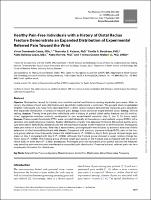Por favor, use este identificador para citar o enlazar este ítem:
https://repositorio.usj.es/handle/123456789/900
Registro completo de metadatos
| Campo DC | Valor | Lengua/Idioma |
|---|---|---|
| dc.contributor.author | Gargallo, Pilar | - |
| dc.contributor.author | Lample Gracia, Luis Javier | - |
| dc.contributor.author | Miguel, Jesús | - |
| dc.contributor.author | Salvador, Manuel Juan | - |
| dc.date.accessioned | 2023-02-22T09:48:33Z | - |
| dc.date.available | 2023-02-22T09:48:33Z | - |
| dc.date.issued | 2022-06 | - |
| dc.identifier.citation | Pilar Gargallo, Luis Lample, Jesús Miguel, Manuel Salvador,Dynamic comparison of portfolio risk: Clean vs dirty energy, Finance Research Letters,Volume 47, Part A,2022,102957,ISSN 1544-6123,https://doi.org/10.1016/j.frl.2022.102957. | en_US |
| dc.identifier.issn | 1544-6123 | en_US |
| dc.identifier.uri | https://repositorio.usj.es/handle/123456789/900 | - |
| dc.description.abstract | This paper analyses whether investing in clean energy significantly worsens the risk level of in-vestors. To that aim, we propose a dynamic strategy to carry out a comparative risk analysis of three minimum-variance portfolios: a portfolio made up exclusively of dirty energies, a portfolio made up only of clean energy assets, and a portfolio combined with the two types of energies. To that aim, we use multivariate GARCH models, concretely Asymmetric Dynamic Conditional Correlations models (ADCC-GARCH) to predict the variance and covariance matrices of the daily asset returns and we compare the portfolio volatilities using the methodology proposed by Engle and Colacito (2006). The analysed period was from January 2010 to September 2021, so that the data include half of phase II, full phase III and the onset of phase IV of the EU ETS, as well as the Brexit and COVID-19 outbreaks in the European context. Our results show that, unlike what happened in other economic crises (subprime, Brexit), from the pandemic crisis, the investment in clean energies is preferable to fossil energies, not only in terms of profitability, as other studies have shown, but also in terms of risk. Therefore, investing in clean energy companies, which are aligned with their role towards socially responsible initiatives, is valuable not only for its contribution to a sustainable energy transition to renewable sources but also for the attractiveness from a financial point of view. | en_US |
| dc.format.extent | 8 p. | en_US |
| dc.format.mimetype | application/pdf | en_US |
| dc.language.iso | eng | en_US |
| dc.publisher | Elsevier | en_US |
| dc.rights | Attribution-NonCommercial-NoDerivatives 4.0 Internacional | * |
| dc.rights.uri | http://creativecommons.org/licenses/by-nc-nd/4.0/ | * |
| dc.subject | Portfolio selection | en_US |
| dc.subject | Risk management | en_US |
| dc.subject | ADCC-GARCH | en_US |
| dc.subject | Clean energies | en_US |
| dc.subject | Fossil fuels | en_US |
| dc.subject | Energy transition | en_US |
| dc.title | Dynamic comparison of portfolio risk: Clean vs dirty energy | en_US |
| dc.type | info:eu-repo/semantics/article | en_US |
| dc.identifier.doi | 10.1016/j.frl.2022.102957 | en_US |
| dc.rights.accessrights | info:eu-repo/semantics/openAccess | en_US |
| Aparece en las colecciones: | Artículos de revistas | |
Ficheros en este ítem:
| Fichero | Descripción | Tamaño | Formato | |
|---|---|---|---|---|
| Dynamic comparison of portfolio risk.pdf | 541,26 kB | Adobe PDF |  Visualizar/Abrir |
Este ítem está sujeto a una licencia Creative Commons Licencia Creative Commons

